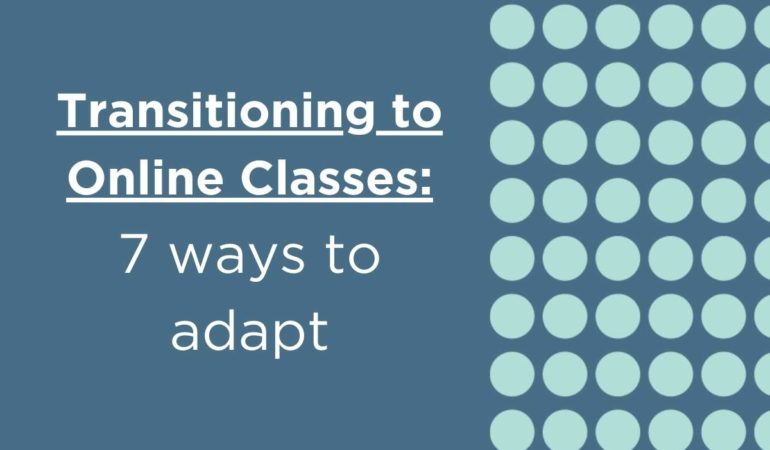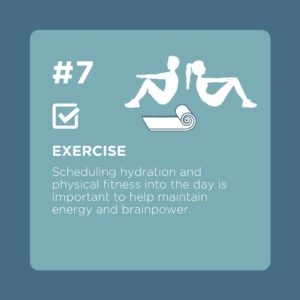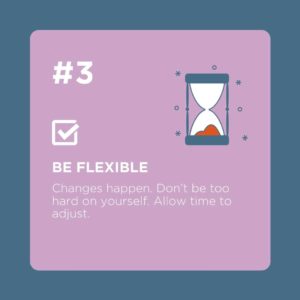7 Ways To Adapt To Home-Based Online Classes

7 Ways High School Students Can Prepare For Online Classes & Digital Learning

Online education is here to stay. Whether you’re new to online learning due to COVID, or you’ve been at an online school for years (like our students), this piece provides useful tips to prepare for online education.
The goal with online learning is to find balance between being challenged and becoming overwhelmed. Here are some tips to help you adjust.

#1 Coordinate with teachers
Your teachers are your friend. Not quite a ‘go-to-the-park-together’ kind of friend, but rather someone who is there to help you succeed. If something comes up and you cannot finish an assignment, or you need extra help with something, let your teacher know as soon as possible to see if there is anything that can be done.
Maybe you want to move faster in your course? Your teacher may not be ready for you if you do not notify them.
At iLearn, students’ weekly check-ins are a perfect opportunity to bring up any questions or concerns. We can’t help if don’t know you need help.

#2 Set a schedule
If you have rigid schedule, writing everything down and when it’s due will help you understand when you’ll have the most difficult weeks to prepare for.
If you’re an iLearn student, you set your pace at the beginning of the course. Knowing your outside-of-school conflicts ahead of time can help when choosing which weeks to move faster, and which weeks you’ll need more time. Write down your teachers’ office hours so you know when they can fit into your schedule.
It may feel like you have more time thanks to having a flexible schedule, but in reality, you need to keep up. Otherwise, assignments start piling up and catching up becomes more difficult.
#3 Be flexible
Let’s say you’ve just been told you have a family reunion to attend next weekend. This happens to be the same weekend you planned to get through all your math homework before your scheduled tests. What do you do?
First, we’ll refer to #2 and #1, so you’ll know the first things you do are: check your schedule to see if you can make time to finish your math homework before you leave, and then notify your teacher and explain the situation. They might be able to help alleviate some, if not all of your stress.
Having a flexible mindset will help you better adapt to the many unexpected changes that will occur in your lifetime.

#4 Lean into your interests
Everybody has different interests. When you come across a topic you’re particularly interested in, leave some time for yourself to spend going further into the topic and learning more. At the beginning of the course be sure to mention your interests in certain subjects. Who knows, your teacher may be able to alter some assignments so you can work your interests into your school work.

#5 Coordinate with parents
Whether you have a quiet place at home to study, you’re working in a busy family room, or you study best at the library, you’ll likely benefit from close coordination with your parents and those living in your home.
You may be expected to attend family events or help around the house. As a student, you might need to set boundaries so your parents know when you’re “in class” and especially while you’re writing tests.
Make sure you have your workspace prepared with plenty of room for your laptop, writing materials, and anything else you need to keep focused. Create folders on your computer for your classes and use a to-do list to make sure the most important things are listed and waiting to be checked off. You can use this list whenever your parents ask what you did in school for that day.

#6 Find additional resources
Your teachers, school administrators, or even your principals can help connect you to additional resources that you may find helpful.
Our school has some laptops and calculators for students to use and textbooks to check-out while you’re at our campus.
Use the web wisely to find informative websites and explainer YouTube videos. Be careful not to get distracted when you visit these sites. If you’re one to get distracted, perhaps try loading your content and going through some of it offline.

#7 Exercise & Hydration
Physical fitness plus a hydrated body is a simple formula for a healthy individual. Online learners are more likely to spend a large amount of time sitting, which makes it even more important to break up the day with some exercise.
And of course, we need vitamins and nutrients and all that too, but at its very core, if you’re not hydrated, or do not exercise regularly, you will find it more difficult to learn.
Our brains are made of 70%+ water. Just like plants, we need to stay hydrated so our brains can grow. It’s no wonder that when a brain is slightly dehydrated it performs 10 percent to 15 percent more slowly (source).
Learning from home is definitely an adjustment. It’s up to you to make it a positive one. In the long-run, you’ll realize the skills you are building in high school online is relevant not only in university, but in the workforce too. And hey, if you’re digging this whole online school thing, maybe you can share some study secrets with your peers.


